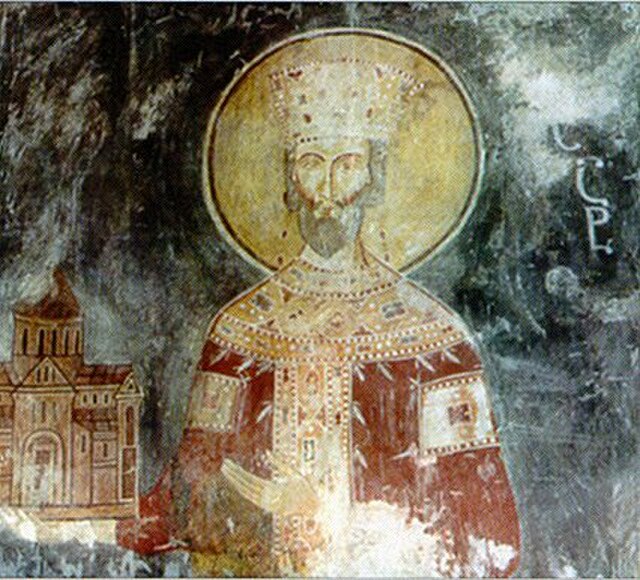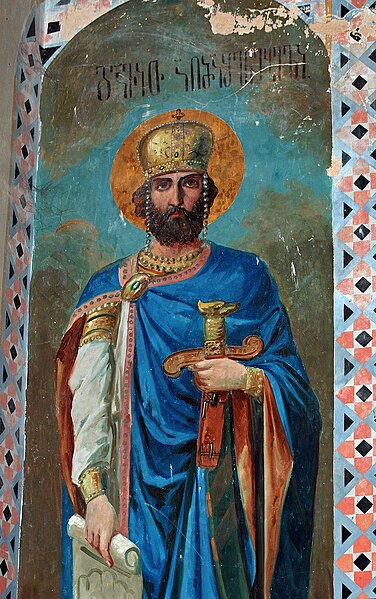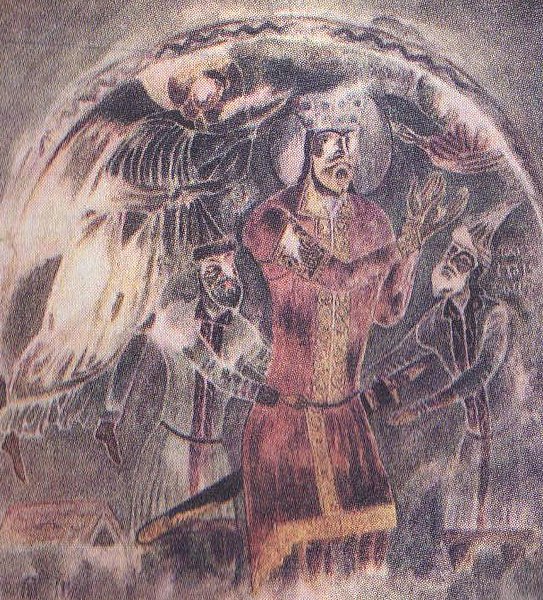The Battle of Didgori was fought between the armies of the Kingdom of Georgia and the Seljuk Empire at the narrow place of Didgori, 40 km west of Tbilisi, on August 12, 1121. The large Muslim army, under the command of Ilghazi, was unable to maneuver and suffered a devastating defeat due to King David IV of Georgia's effective military tactics.
Didgori monument
Section of the Didgori monument with swords stuck in the ground
The Kingdom of Georgia, also known as the Georgian Empire, was a medieval Eurasian monarchy that was founded in c. 1008 AD. It reached its Golden Age of political and economic strength during the reign of King David IV and Queen Tamar the Great from the 11th to 13th centuries. Georgia became one of the pre-eminent nations of the Christian East, and its pan-Caucasian empire and network of tributaries stretched from Eastern Europe to Anatolia and northern frontiers of Iran, while Georgia also maintained religious possessions abroad, such as the Monastery of the Cross in Jerusalem and the Monastery of Iviron in Greece. It is the principal historical precursor of present-day Georgia.
A fresco of King Bagrat III from Bedia Cathedral
David IV of Georgia, a fresco from the Shio-Mgvime monastery
Gelati Monastery, a UNESCO World Heritage Site
Coronation of Demetrius I, a fresco from Matskhvarishi, 1140





